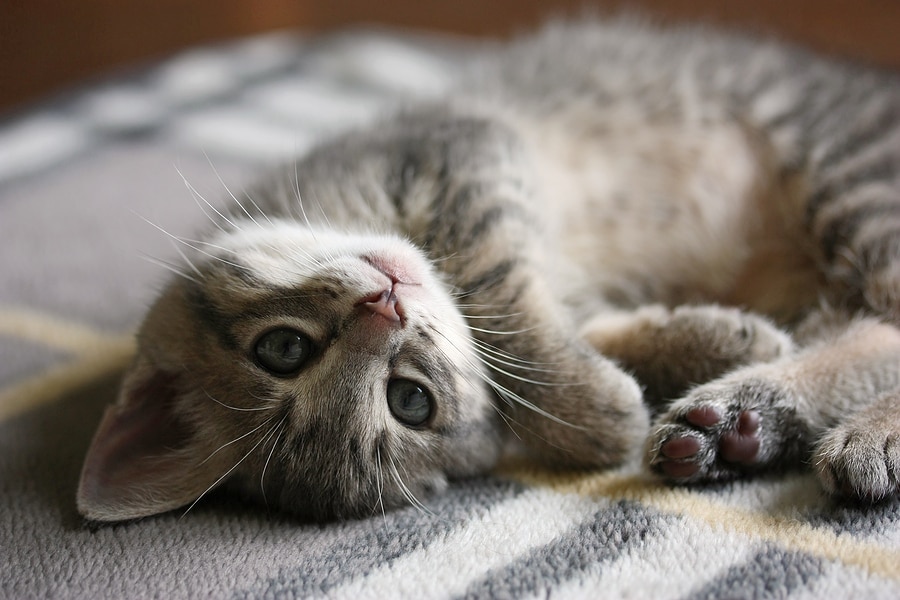3 Ways to Calm Your Anxious Cat

Photo by Chewy
It might be difficult to believe that cats can get stressed. After all, they get bottomless bowls of dry cat food, spend most of the day sleeping and, well, they don’t have to hold down a job. Who hasn’t looked at a dozing cat on their way to work and thought, “I wish I was you?” Cat behavior helps us understand the cat signs and cat symptoms of a scared cat and helps us calm his anxiety.
Cats are creatures of habit, and if something is amiss, they don’t have the words to tell you they’re worried. Situations you might not consider stressful–such as an influx of people into your home for a party–can be incredibly anxiety-inducing for animals. “Anything new that’s outside the ‘normal’ of a cat’s lifestyle can be a stress factor,” says Dr. Robert Trimble, DVM, Head of Veterinarian Services and Lead Veterinarian at Yourfuzzy.com. “Even down to as something as insignificant as the type of cat litter in the litter box.”
“One of the first things we look for when cats are stressed are behavioral symptoms,” Dr. Trimble says. Here are some cat symptoms that any concerned pet parent needs to be on the lookout for:
- Inappropriate urination or defecation outside of the litterbox
- Excessive vocalization
- Excessive, compulsive grooming
- Heavy, open-mouthed breathing
So whether your scared cat is exhibiting any of the above cat signs or anxiety or you’re trying to preemptively treat stress (especially if you have a veterinary visit or a move coming up), we’ve gathered some expert-approved solutions to make a scaredy cat feel at-ease.
SHOP CHEWY: Best Cat Stress & Anxiety Products
One proven method to help kitties feel calmer is exposing them to pheromones that mimic the ones cats themselves produce when they are feeling secure in their environment. The Comfort Zone 2X Pheromone Formula Calming Diffuser Kit is a top-rated pheromone diffuser that can create a calmer environment for your cat. You can also try a calming collar. They are not as localized as a plug-in diffuser, meaning the good vibes can follow your kitty throughout the entire house! Just be sure to note that those collars have a lifespan. Dr. Trimbles adds that if your cat has been wearing a collar for over a month, you should get a replacement.
Now we’re not saying you should break out the foam mat and practice some cat yoga with your feline friend (unless, of course, you want to!). But a natural, quick fix to nervous or scared cat behavior is one you probably already have in your house: Catnip. “It won’t work long-term, but it can cause an increase in your cat’s psychological well-being,” Dr. Trimble says. Another thing to try is a little aromatherapy. According to Dr. Trimble, lavender can have calming effects in scared cats and even dogs. Just be sure to check in with your vet, as certain scents can be irritating to cats due to their superior sense of smell.
There seems to be a treat formulated for just about everything, from allergies to UTI issues, so of course there are cat treats that combat the anxiety cat behavior. Pet Naturals of Vermont Calming Cat Chews are billed to be a non-sedative, natural solution to stressors like thunderstorms and vet visits. VetriScience Composure Behavioral Health Bite-Sized Cat Chews contain Colostrum, a product of certain milk-based proteins that can have a calming effect on cats. “Chews are relatively cheap in comparison to some pharmacological interventions like anti-anxiety medications that your vet might prescribe, and with a lot fewer side-effects,” Says Dr. Trumble. “All cats are not the same and it will depend on the cat, but I’d say it’s worth a try.”



